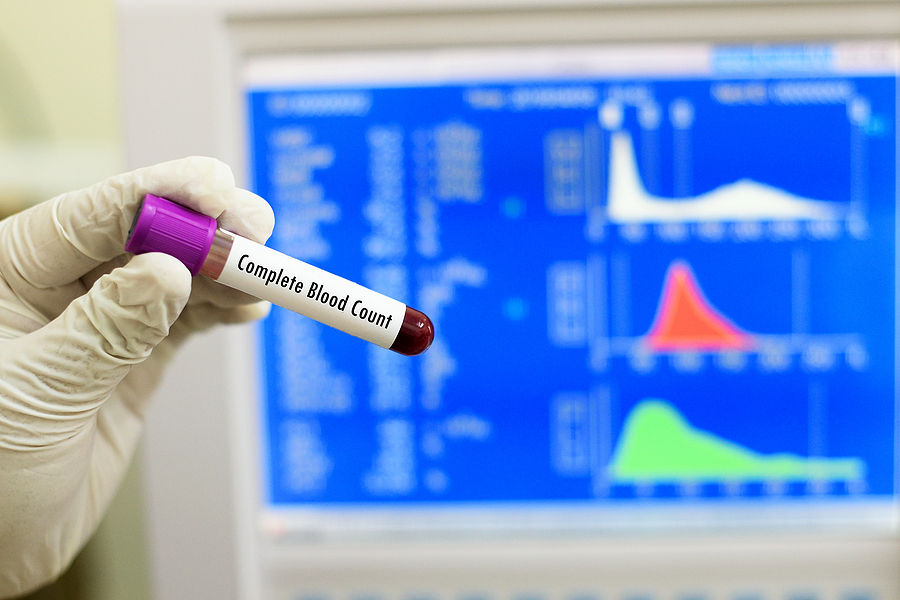What information about your health can your blood provide?
- Epicare Health Pharmacy
- Jul 3, 2024
- 3 min read
Updated: Jul 29, 2024

Blood, the very essence of life, pulsates through our veins carrying oxygen, nutrients, and waste products throughout the body. But beyond its vital role in transportation, blood is a rich source of information about our health. A simple blood test can be a powerful tool for doctors, offering a window into the inner workings of our bodies. So, what exactly can your blood tell you about your health? Let's delve deeper.
Understand Your Cellular Landscape: A Complete Blood Count (CBC)
One of the most common blood tests is the complete blood count (CBC). This workhorse provides a detailed analysis of your blood cells, including:
Red Blood Cells (RBCs): These carry oxygen throughout your body. Their levels can indicate conditions like anemia (low RBCs) or polycythemia (high RBCs).
White Blood Cells (WBCs): These are the foot soldiers of your immune system, fighting infections. Abnormal WBC levels might suggest infection, inflammation, or even immune system disorders.
Platelets: These are responsible for blood clotting. Abnormal platelet levels can increase bleeding risk or lead to clotting problems.
The CBC paints a picture of your blood cell production and function, offering clues about potential underlying health issues.
Beyond the Cells: Know The Chemical Secrets
Blood also carries a multitude of chemicals, enzymes, proteins, and other substances. Analyzing these can reveal a wealth of information:
Electrolytes: These minerals like sodium and potassium are crucial for nerve and muscle function. Imbalanced electrolytes can lead to weakness, fatigue, or even heart rhythm problems.
Blood Sugar: This test measures your blood glucose levels, helping diagnose and monitor diabetes.
Cholesterol: There are different types of cholesterol, some beneficial (HDL) and some harmful (LDL). This test helps assess your risk of heart disease.
Kidney Function Tests: These tests evaluate the health of your kidneys by measuring waste products they filter from your blood.
Liver Function Tests: Similar to kidney function tests, these assess liver health by measuring enzymes and proteins produced by the liver.
Thyroid Function Tests: The thyroid gland regulates metabolism. Blood tests measure thyroid hormones to diagnose conditions like hyperthyroidism or hypothyroidism.
By analyzing these various chemicals, doctors can gain insights into your organ function, metabolism, and potential health risks.
Early Detection: A Powerful Weapon
One of the most valuable aspects of blood tests is their ability to detect health problems early, often before symptoms even appear. This is particularly important for chronic conditions like diabetes, high blood pressure, or kidney disease. Early detection allows for early intervention and treatment, potentially preventing complications and improving long-term health outcomes.
For instance, a simple blood test can flag elevated cholesterol levels, prompting lifestyle changes or medication to manage this risk factor for heart disease.
Beyond Routine Checkups: Specialized Blood Tests
While routine blood tests offer a general health assessment, specific tests delve deeper into particular concerns. Here are some examples:
Allergy Testing: This can identify specific allergens triggering your reactions.
Autoimmune Disease Testing: These tests look for markers of autoimmune conditions like lupus or rheumatoid arthritis.
Hormone Testing: This can assess hormone imbalances related to thyroid function, fertility, or menopause.
Tumor Markers: These can indicate the presence of certain cancers, though further tests are needed for confirmation.
Travel Vaccines: Before venturing abroad, blood tests can check your immunity to specific diseases and determine if you need travel vaccinations.
If you're interested in taking a more proactive approach to your health, private blood tests at a reputed pharmacy in Swindon can be an option. These tests allow you to have a wider range of blood tests done without necessarily needing a doctor's referral. However, it's crucial to discuss the results with a doctor to ensure proper interpretation and follow-up.
The Takeaway: Knowledge is Power
Blood tests are a valuable tool for maintaining and improving your health. By understanding the wealth of information your blood reveals, you can work with your doctor to create a personalized healthcare plan. Regular blood tests, alongside a healthy lifestyle, can empower you to take charge of your well-being and live a healthier, longer life. Always consult with your doctor to discuss your individual health concerns and the best course of action for you.
.png)



Comments